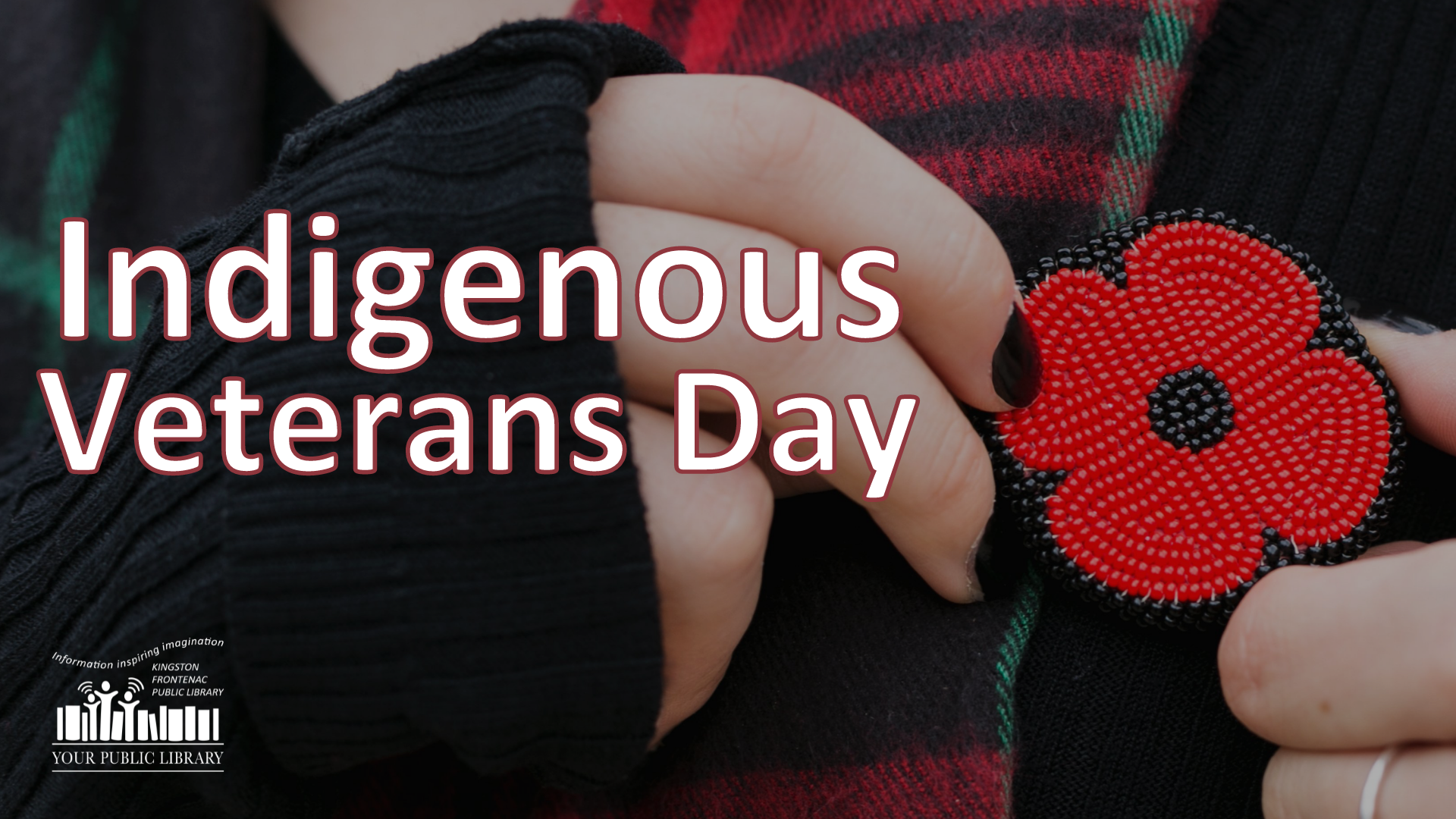
November 8 is Indigenous Veterans Day. On this day, Canadians commemorate the sacrifices and contributions of Métis, First Nations and Inuit to the armed forces. To learn about Indigenous experiences in the services, check out these titles.
Walking The Medicine Wheel: Healing Trauma and PTSD by David R. Kopacz and Joseph Rael
This book uses the circular pathway of the medicine wheel to re-train that nervous system. Rather than viewing trauma, obstacles and disappointments as negatives, the medicine wheel offers a way of transforming these events into an initiation into the new role of warrior-citizen. Walking the medicine wheel is walking a spiritual path - integrating body-emotion-mind-spirit, within the circle of the four directions.
Sounding Thunder: The Stories Of Francis Pegahmagabow by Brian D. McInnnes
Stories from the life of Ojibwe Francis Pegahmagabow, who became Canada's most decorated Indigenous soldier during the First World War, and then settled in Wasauksing, Ontario, where he served his community as both chief and councillor and belonged to the Brotherhood of Canadian Indians, an early national Indigenous political organization. Francis proudly served a term as Supreme Chief of the National Indian Government, retiring from office in 1950.
Deadly Aim: The Civil War Story Of Michigan's Anishinaabe Sharpshooters by Sally M. Walker
An engaging middle-grade nonfiction narrative exploring the extraordinary lives of Michigan’s Anishinaabe sharpshooters. Filled with fascinating archival photographs, maps, and diagrams, this book offers gripping firsthand accounts from the frontlines. You’ll learn about Company K, the elite band of sharpshooters, and Daniel Mwakewenah, the chief who killed more than 32 rebels in a single battle despite being gravely wounded.
Code Talker: The First and Only Memoir By One of the Original Navajo Code Talkers of WWII by Chester Nez and Judith Schiess Avila
His name wasn’t Chester Nez. That was the English name he was assigned in kindergarten. And in boarding school at Fort Defiance, he was punished for speaking his native language, as the teachers sought to rid him of his culture and traditions. But discrimination didn’t stop Chester from answering the call to defend his country after Pearl Harbor, for the Navajo have always been warriors, and his upbringing on a New Mexico reservation gave him the strength—both physical and mental—to excel as a marine. Includes actual Navajo code.
Indigenous Peoples In The World Wars by Simon Rose
This book presents information about the First World War, the Second World War, Indigenous Women in the World Wars, and The Home Front. It pays tribute to the men and women who served during the wars including Edith Anderson, Cameron Brant, Charles Byce, David Greyeyes, Mary Greyeyes, F. O. Loft, Tom Longboat, O. M. Martin, Marion Miller, Henry Norwest, Francis Pegahmagabow, and Tommy Prince. The role of women during the wars acknowledges the work of community organizations such as Six Nations Women’s Patriotic League. For elementary students.
Pegahmagabow: Life-Long Warrior by Adrian Hayes
In compiling this account of Francis Pegahmagabow’s remarkable life, Adrian Hayes conducted extensive research in newspapers, archives, and military records, and spoke with members of Pegahmagabow’s family and others who remembered the plight and the perseverance of this warrior.
Redpatch: A Play by Raes Calvert and Sean Harris Oliver
The story of a Métis soldier fighting for Canada on the Western Front of Europe during WWI. Vancouver 1914, a young Native man named Jonathon Woodrow, desperate to prove himself as a warrior enlists to fight in the Canadian army. Relying on his experience in hunting and wilderness survival, Pte. Woodrow quickly becomes one of the most feared trench-raiders in the 1st Canadian Division. But as the war stretches on, and with no end to the fighting in sight, Pte. Woodrow begins to realize that he will never go home again.
Grandpa's Girls by Nicola I. Campbell
Grandpa’s Girls follows a group of four cheerful Interior Salish cousins enjoying a visit to their Grandpa's farm. They explore the "secret room," with its old wooden trunk of ribbons, medals and photos of Grandpa in uniform. "Once a soldier, now a veteran, Grandpa is our everything – elder, gardener, chef, businessman, rancher, cowboy… But best of all, he’s Grandpa." Ages 4 to 7.
From The Tundra To The Trenches
An autobiography of Inuit Eddy Weetaltuk whose tag name was E9-422 given to him by the Canadian government. He left his home in James Bay, enlisted in the Canadian Forces and went off to fight in the Korean War.













